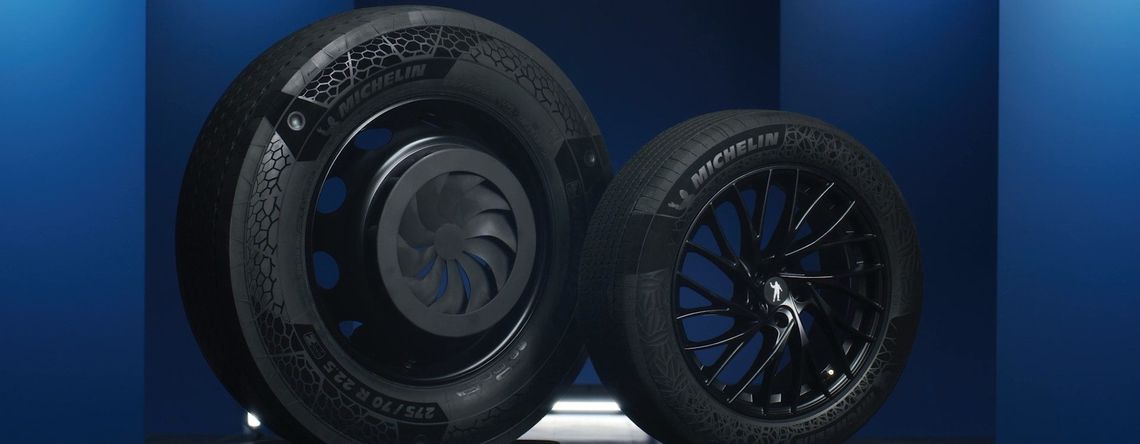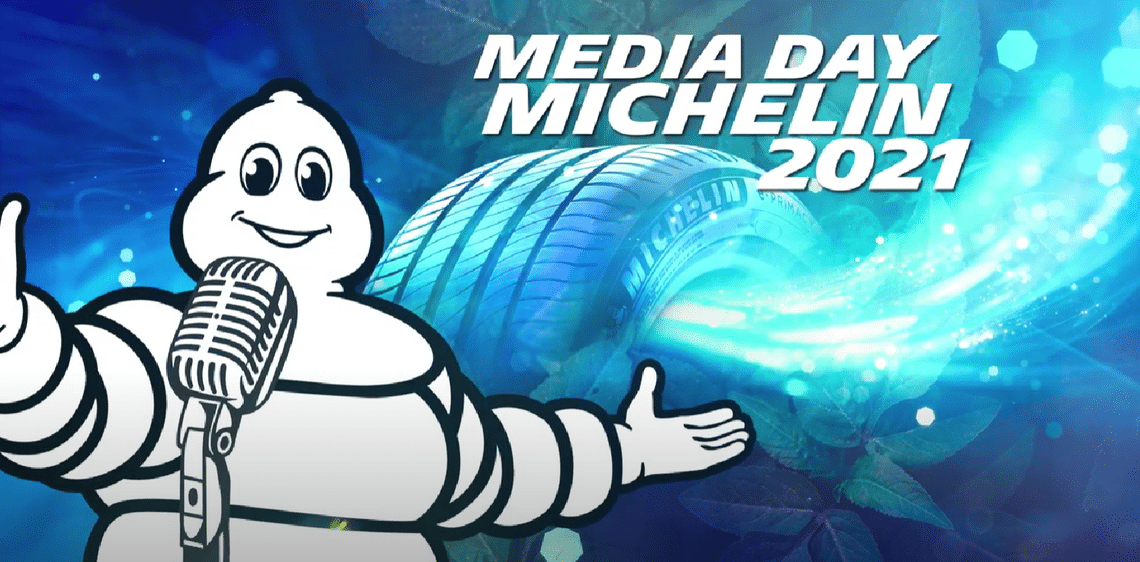Media Day 2021
During its first Media Day, at the Group’s global Research & Development center in Clermont-Ferrand, Michelin set out the challenges of the 100% sustainable tire.
By 2030, Michelin will integrate an average of 40% sustainable materials in its tires. In 2050, this rate will reach 100%.
"We’re quick to think that a tire is simple and that they’re all alike. But this tire is not like the rest. No more today than yesterday, and even less tomorrow. Because tomorrow, this tire will be 100% sustainable at every stage of its life cycle." |
Towards a 100% sustainable tire at every stage in its life cycle
In the face of the climate emergency, the 100% sustainable tire is a challenge that the Group must overcome in the next few years. To achieve this, Michelin is relying all its innovative power, and its capacity to develop new innovative ecosystem technologies, and is acting on every stage of a tire’s life cycle: Design, Manufacture, Logistics, Use, Collection and Recycling.
Design
As of its design, the tire already integrates more bio-sourced or recycled materials (natural rubber, bio-sourced resins, recycled plastics, etc.). Michelin engineers are in action on numerous research projects carried out in partnership with startups, laboratories and universities. By 2030, Michelin will integrate an average of 40% sustainable materials in its tires. In 2050, this rate will reach 100%.
Manufacture
When manufacturing tires, Michelin undertakes to reduce the environmental footprint of all its production factories, in terms of solvent and energy consumption, waste generated, CO2 emissions and water extraction. Since 2005, the Group has already reduced its impact by 50%.
Logistics
For logistics, the Group undertakes to transport less, better and in a different way. Michelin therefore aims to reduce CO2 emissions from logistics by 15% by 2030, compared to 2018. It is also progressively developing alternative methods of transport, such as battery- and hydrogen powered electric vehicles and even sail-powered cargo ships. For example, the Group announced an initial partnership with Neoline, a ship-owner operating sail-powered vessels, for carbon-neutral transport on the Halifax-Saint-Nazaire route.
Use
When manufacturing tires, Michelin undertakes to reduce the environmental footprint of all its production factories, in terms of solvent and energy consumption, waste generated, CO2 emissions and water extraction. Since 2005, the Group has already reduced its impact by 50%.
End-of-life and recycling
At the end of their life, Michelin aims to transform used tires into raw materials, which will be reintegrated into the production of new tires or the manufacture of new objects.
Documents to download
-
View document
Press Release: Media Day 2021
142.9 kB (pdf) -
View document
Media Day 2021 - Introduction
416.4 kB (pdf) -
View document
Media Day 2021 - Conception
2.2 MB (pdf) -
View document
Media Day 2021 - Manufacturing
3.4 MB (pdf) -
View document
Media Day 2021 - Logistics
2 MB (pdf) -
View document
Media Day 2021 - Use
2.7 MB (pdf) -
View document
Media Day 2021 - Recycling
2.7 MB (pdf)
High times of the day
Feedback on the moments that marked this day dedicated to the challenges of the 100% sustainable tire through interventions, demonstrations and workshops to show the tire at every stage in its life cycle.

